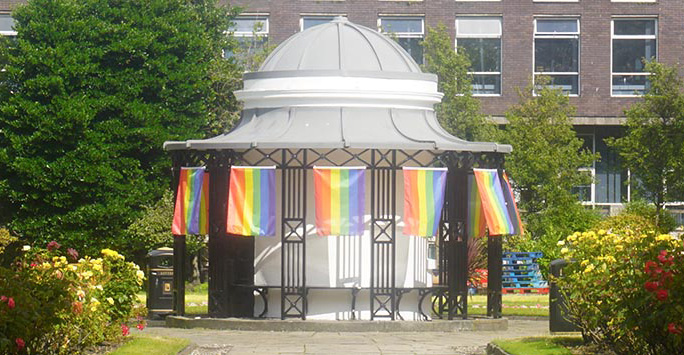
In celebration of LGBT History Month, we caught up with some of our Societies to learn more about how they are working to support LGBT+ healthcare issues, and their upcoming conference in partnership with the LGBT+ Society.
The Approaching LGBT+ in Healthcare Conference on Saturday 20th March pull together experts from different fields to help student doctors gain confidence in treating LGBT+ patients.
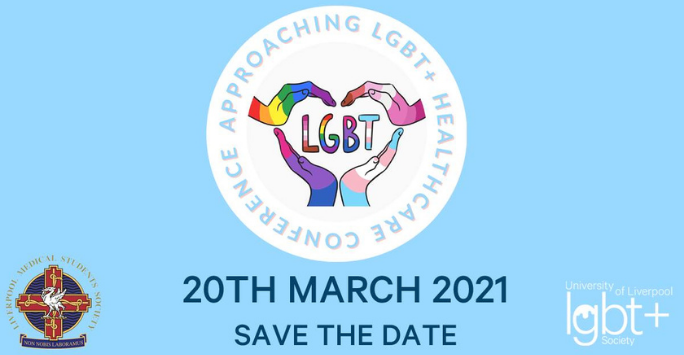
Student Doctor and LGBT+ Society Secretary Aarzoo Bhatia says, “I believe that as future doctors we have a responsibility to ensure our knowledge on these issues is well rounded and use it to then help influence decisions in the best interests of our patients.”
Student Doctor Katie Taylor is LGBTQ+ rep for LMSS (Liverpool Medical Students’ Society) and has been instrumental in putting the conference together. “I want our teaching to reach as many different people as possible and wanted to create a group of topics that I think would be most important for future doctors to know about.”
Student doctors Rebecca Nagar, President of SNOGS (Student Neonatal Obstetrics and Gynaecology Society), Emma Wilson, President of Liverpool’s GP Society, Maddie Upham, Media and Communications Rep for MADsoc (Medics Against Discrimination) and Alice Bradfield, President of HIVE (HIV Education) Society join Katie and Aarzoo to share more about the event and the LGBT+ issues closest to their heart.
Rebecca (SNOGS): An LGBT+ event has been something we have thinking about for a while.
Emma (GPSoc): We worked with Dr Adrian Harrop and Dr Jasmin Farikullah-Mirza to put together a Transgender Healthcare 101 event earlier this year. This helped us form links with the LGBT+ Society and we were honoured when we were asked to be part of this conference.
Maddie (MADSoc): At the conference we will be collaborating with HIVE on a talk that focuses on a gender and sexuality inclusive approach to sexual health. If you look at cervical screening, there is a lower uptake amongst lesbian, gay and bisexual women - 17.8% have never had a smear test. Some of this is due to misinformation and a lack of patient understanding, but a deeper understanding from doctors would help improve matters. Another important issue is improving access to gender identity clinics, where the average wait time for a first appointment is 18 months.
Rebecca: Fertility is obviously a big part of O&G and a very exciting sub-speciality when it comes to LGBT+ healthcare as it provides the opportunity for people to have a family of their own, which they may have once not thought possible.
And I’m really happy that learning about the specific needs of LGBT+ patients and how this relates to O&G as a speciality is now part of the Royal College of Obstetricians and Gynaecologists (RCOG) trainee curriculum.
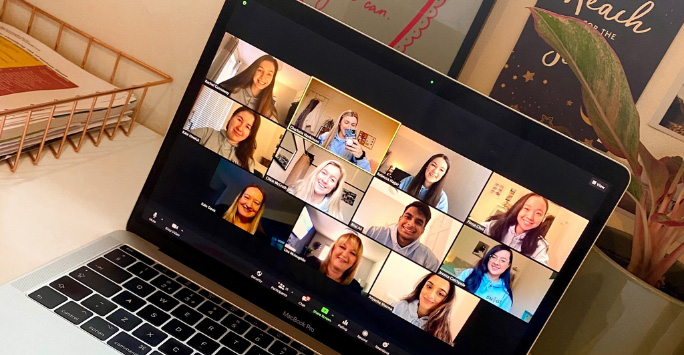 SNOGS Committee 20/21
SNOGS Committee 20/21
Emma: General practice is the primary area of patient contact in the NHS, with over 300 million patient consultations taking place each year. It’s positive that the culture in general practice is becoming increasingly accepting.
LGBT advocates have been introduced within the RCGP, and GPs can now have a specialist interest in gender-affirmative healthcare. The RCGP has also produced learning resources specific to LGBT healthcare, including the online LGBT Health Hub and event programme.
Alice (HIVE): The rules surrounding blood donations have also recently become much more gender neutral and inclusive, meaning all donors now have the same health check prior to donation, regardless of gender or sexuality.
There is progress being made in improving the lives of those living with HIV.
Pre-exposure prophylaxis (PrEP) was recently made freely available on the NHS, allowing HIV-positive people to continue a healthy sexual relationship with their HIV-negative partners. The recent U=U (undetectable = untransmittable) campaign explains how HIV positive people with an undetectable viral load cannot pass the virus on to others.
This just reiterates how far HIV treatment has come and how low the risk of transmission is with effective treatment.
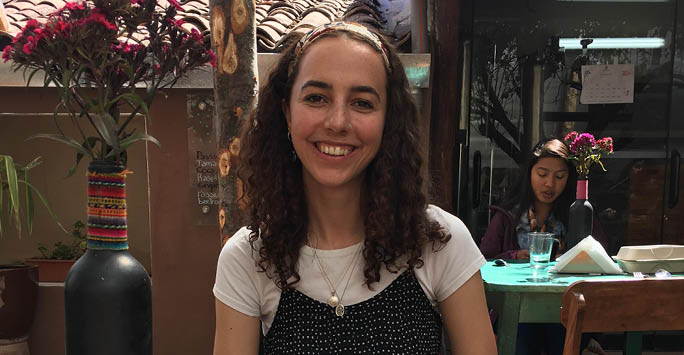 Alice Bradfield, President of HIVE (HIV Education) Society
Alice Bradfield, President of HIVE (HIV Education) Society
February has been LGBT History Month. What are your wishes for the future in the care and treatment of LGBT+ patients?
Alice: We would like to see people being taught about safe sex in a way that is inclusive of all orientations and gender identities. Ultimately, we hope that with better health education there will be an end to new HIV diagnoses.
Maddie: Often LGBT+ healthcare issues are viewed as political issues rather than healthcare issues, but I think it's essential that as future doctors we remember that there are patients behind these issues whose lives are deeply affected.
Emma: My main hope would be improved patient-clinician relationships, which foster trust. Whilst some great changes have already been made, there remains huge scope for positive improvements, including better tailoring of healthcare to each patient.
Rebecca: SNOGS hopes that all LGBT+ patients are respected and that there is no discrimination or barriers for them to access any form of healthcare.
We hope that the conference is the beginning for future student doctors to have a better understanding of LGBT+ healthcare.
Katie (LMSS): It shouldn’t be the role of the patient to educate their doctor on what the right questions are and how to ask them, from personal experience I know it is frustrating and makes the patient feel uncomfortable. Improving communication is the first step towards overall better LGBTQ+ healthcare.
Aarzoo (LGBT+ Society): We can talk about things now we simply wouldn’t have addressed before. People are telling us, ‘I want to approach these issues with patients, but I don't always feel comfortable. I feel like I tiptoe around them.’ I see it as a lack of information rather than a lack of acceptance – which is a really positive sign. It’s all about progressing beyond the medical diagnosis to a more personal approach.
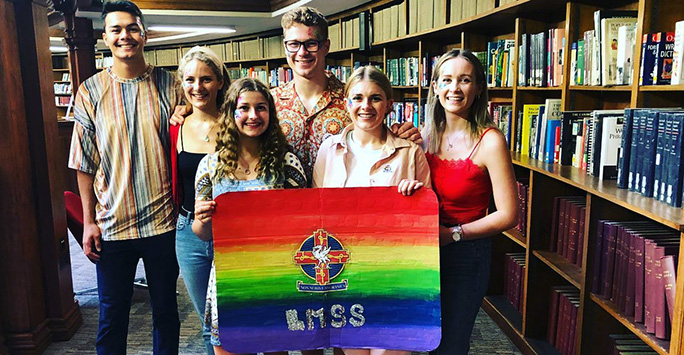
Discover More
Join the Approaching LGBT+ in Healthcare Conference Facebook event (Saturday 20th March).
Learn more about smear tests in the LGBT+ community.
Learn more about the U=U (undetectable = untransmittable) campaign on the Prevention Access website.
Find out more about the LGBT+ Society via The Guild website.
Follow more medical societies on Instagram: @LMSSonline - @UoLMADSoc - @HIVELiverpool - @livSNOGS - @livGPSoc